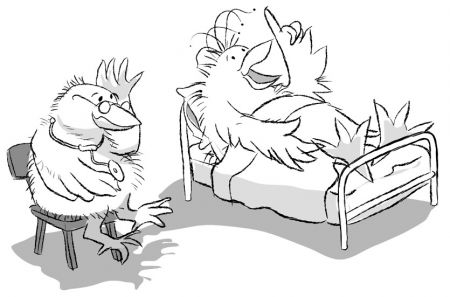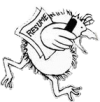Blog
 This year has been personally very difficult and challenging. My daughter passed away in May and I have been focusing on coming to terms with the grief and loss, both personally and as a family. I have also thought about how my experience can improve the training I provide doctors for specialty and consultant interviews.
This year has been personally very difficult and challenging. My daughter passed away in May and I have been focusing on coming to terms with the grief and loss, both personally and as a family. I have also thought about how my experience can improve the training I provide doctors for specialty and consultant interviews.
What I have realised both from professional and personal experience is that there are a number of aspects which doctors find challenging when preparing for interview. The most difficult is their mindset.
At interview, when responding to questions, their greatest challenge is balancing what makes a safe and competent doctor (skills, knowledge and experience) with the individual needs and expectations of their patients and/or their families (empathy, listening, hearing and adapting their approach).
This difficulty is based on a number of critical factors, most of which are system/training issues rather than personal attitudes.
The following are some of the key aspects that make it difficult for doctors to fully understand the interview questions and give an inclusive response.
Medical Training
Medical training is typically based on the problem/solution teaching model, underpinned by evidence based medicine (memorised knowledge) and the process of elimination to reach a diagnosis. This process minimises the focus on the individual patient. This approach works well in terms of diagnosis and treatment in an academic setting, however in the real world it is not enough.
As a result of this training medical students and doctors are highly skilled in memorising vast quantities of complex information, which is essential to pass exams, the real skill, required is the ability to apply this knowledge to an individual patient. Having the knowledge and technical skills, and being able to apply these, within a patient centred environment requires addition attributes that are not a key part of their training and yet vital to make the individual a competent doctor. These skills include listening and hearing the patient, understanding the patient's perspective and the ability to adapt their own approach accordingly. There is also a need to be 100% present when seeing a patient.
The Hospital System
The long hours of work, frequent on calls, limited time available to see or review a patient, the conflicting demands on their time including study, professional development, research and changing priorities limit the time a doctor has to listen and hear what their patient is saying to them. These time pressures make it almost impossible for doctors to spend the extra minute or two to hear their patient. What often happens while the patient is talking to the doctor, is that the doctor is already writing their management plan and thinking about the next patient they need to see. The doctor's focus is on time and the medical condition. The patient becomes a medical condition to treat. Not a person with a medical condition.
This approach translates into how doctors prepare for interviews, the mindset they have is to solve the clinical problem in the shortest amount of time. This approach fails to take into account broader aspects which directly impact on the patient's overall welfare.
The Feedback System
The post-graduate training system is based, to a significant extent, on the concept of reflection and continuous improvement. The focus of the feedback is to facilitate continuous improvement to meet the level of skills and knowledge required for progression. As a result, doctors are always focused on what they need to achieve and don't reflect on their achievements. It is rare for junior doctors to receive positive feedback.
The consequence of this process is that doctors often lack self confidence. This can be heard in how they express themselves when preparing for interviews. Given the lack of insight into their skills (and at times limitations) they are more likely to follow the process and the directions of their seniors with few having the confidence to question them. The patient again is seen as the provider of a medical condition to diagnose, treat and discharge, rather than a person with a medical condition that needs to be treated more holistically.
This approach is reinforced by the fact that doctors often refer to their patients by their medical condition rather than their name. The reality is, that there is always room for improvement, however the problem is that doctors rarely get any positive feedback. The system and time constraints does not encourage questioning seniors decisions. Senior doctors also rarely reflect on their instructions or approach. They too are just too busy. Reflection is used mostly when an adverse event occurs.
Role Modelling
Role modelling is an important part of the hospital training system. Junior doctors learn many of their skills, behaviours and approaches from their more senior colleagues. This approach may work well in theory, however, the success of this approach depends not only on their senior's knowledge and experience but also on the level of the senior doctor's patient focus, interpersonal, communication and management skills.
There are limited guidelines or training provided for these essential non clinical skills. In reality, from residency onwards, doctors are expected to supervise and train their juniors. This is a challenge for many doctors at all levels as they have limited experience in supervision or the skills required to be a competent supervisor/role model. Doctors often find it difficult to fully answer interview questions about the qualities of leadership or why is leadership important.
Achievement Culture
Doctors are high achievers by nature, they are not used to failing nor skilled in reflection which makes dealing with any perceived or real failure very difficult. When training doctors, one of the most difficult questions for them to answer is about a mistake or not having achieved a goal. They see this as a personal failing rather than just a question, and view the response as an admission of failure rather than a valuable learning opportunity.
The other concerning aspect of the achievement culture is that those who do not succeed in their first or second attempt feel isolated and too ashamed to admit to having problems or ask for help. They fear they will lose their training and career opportunities even when the issues are short term. This is particularly concerning when talented and capable doctors commit suicide or self harm rather than asking for help. In the achievement culture, struggling doctors may not even confide in their close friends.
While there is no easy solution, it is time that training institutions, hospitals, health departments, the profession and of course government reflects on these issues and more importantly takes action to improve the outcomes for patients and the medical profession.
It is not about statistics or just funding, it is about the impact on individual patients, doctors and other health professionals their families, friends and communities which is so much more costly in the longer term if not addressed.
In terms of preparing for an interview the most important changes which doctors need to make are:
- Mindset - think more broadly
- Understand that the question is about applying their knowledge, skills and attributes and not just providing a memorised answer based purely on a clinical solution.
- Be 100% present - listen carefully to the question
- Focus on content, not time and simply the clinical solution
- Understand the purpose of research in medicine - it is not just to score points for a selection interview - it is about the benefit to the patient
- Understand and be mindful of the patient/family/carer perspective not just the medical model
This article is dedicated to my daughter
Irena Prescott
Who took her own life
21 December 1988 - 18 May 2019
© 2024 Impressive Interviews. All Rights Reserved.

